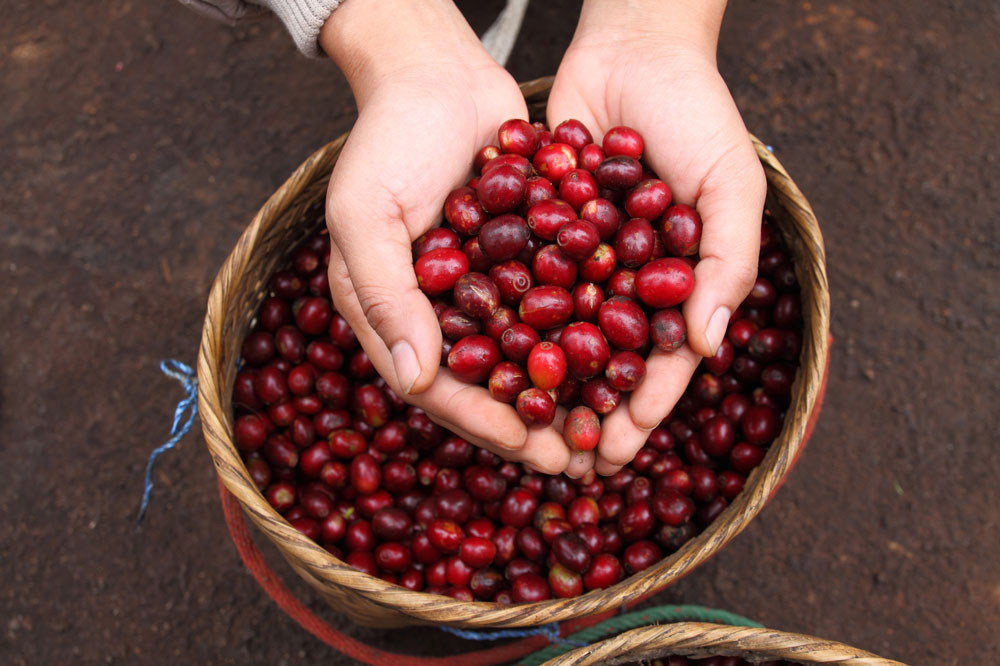Indonesian civet coffee with special flavor and mellow taste
Civet Coffee (Kopi Luwak), the most expensive coffee in the world, costs hundreds of dollars per pound. It is extracted from the civet's feces and processed. The civet eats the ripe coffee fruit, which is excreted by the digestive system. Due to the fermentation of the stomach, the resulting coffee beans are described by experts as "smooth, taste like chocolate, and do not have any bitter taste." [2]
As experts in the United States, Europe and Southeast Asia have discovered the uniqueness of this coffee, there is a growing demand for civet coffee in the international market, so much so that in the Philippines and Indonesia, the two countries with the most civets, set off a gold rush to collect and process civet coffee. In the Philippines, collectors searched the ground of almost every forest, and as more and more people joined in, civet coffee had become a new industry at that time. In Indonesia, since the production of civet coffee here has a long history, enterprising individuals have turned to catch civets and then raise them in cages in their backyard. Home production is widely distributed in tropical and subtropical regions of China. Including southern Gansu, Sichuan, Shaanxi Qinling, southern Anhui, Zhejiang, Fujian, Jiangxi, Hubei, Hunan, Guangdong, Hainan, Guangxi, Guizhou, Yunnan and low-altitude areas southeast of Xizang. Xizang's Chayu, Bomi, Motuo, Linzhi, Milin, Cuona and other places. Previous literature records (Shou Zhenhuang et al., 1964) are distributed in Jingjiang, Jiangsu, Shanghai and Zhoushan, Zhejiang, but they have not been found in the above areas in the past 30 years.
Foreign distribution
Indonesia, Indo-China Peninsula, India (Northeast), Bangladesh, Bhutan, Sikkim, Nepal, Kashmir.
Produced abroad in northeast India, Myanmar, Nepal, Bhutan, Sikkim, Bangladesh, Indonesia, India and Indo-China Peninsula
Kopi Luwak is produced by the feces of Indonesian coconut cats (a kind of civet) as raw materials, so it is called "Kopi Luwak". This kind of animal mainly feeds on coffee beans. After completing fermentation in the coconut cat's stomach, it destroys protein, produces short peptides and more free amino acids, reduces the bitterness of coffee, and then excretes feces as the main raw material. Because coffee beans cannot be digested, they are excreted and Kopi Luwak is made after washing and baking. Coffee critic Chris Rubin said, "the aroma of the wine is so rich and strong, and the coffee is incredibly rich, almost like syrup." Its thickness and chocolate taste, and lingering on the tongue for a long time, the pure aftertaste of the civet likes to choose the most ripe, sweet, juicy coffee fruit in the coffee tree as food. The coffee fruit passes through its digestive system, and only the pulp on the outside of the fruit is digested, and the hard coffee beans are then excreted intact by the civet's digestive system.
In this way, in the process of digestion, the coffee beans have an unparalleled magical change, the flavor tends to be unique, the taste is particularly mellow, and the rich, round and sweet taste is also incomparable to other coffee beans. This is due to the fact that the civets' digestive system destroys the protein in the coffee beans, making the coffee much less bitter and increasing the round taste of the coffee beans.
Because wild civets are obviously better at picking good coffee fruits, this coffee is remarkable because it comes from the excrement of an animal called civets (commonly known as civets in Indonesia). Although it comes from smelly poop, it is full of sweetness and a burst of indescribable sweetness. This wild musk cat likes to eat fat and pulpy coffee fruits, but the hard hard nuts (raw beans) are indigestible and are excreted with feces. After being cleaned, they become Kopi Luwak coffee raw beans! So many people call it "cat shit" coffee. The Indonesians found that the coffee beans fermented by the civets' intestines and stomach are particularly thick and mellow, so they collect the civets' feces, sift out the coffee beans and brew them to drink. Because the yield is rare and the fermentation process is unique, the flavor is very different from that of ordinary coffee. Traditionally, coffee fruit is transparent.
Musk cat
Musk cat
After washing or sun treatment, the peel, pulp and sheep skin are removed, and finally the coffee beans are removed. However, Luwak uses the method of natural fermentation in the body to remove the coffee beans, so it has a special flavor.

Important Notice :
前街咖啡 FrontStreet Coffee has moved to new addredd:
FrontStreet Coffee Address: 315,Donghua East Road,GuangZhou
Tel:020 38364473
- Prev

Characteristics of Nicaraguan coffee varieties with moderate fragrance and delicious taste introduction to the flavor of boutique coffee beans in manor
Nicaragua: Nicaraguan coffee flavor characteristics: moderate acidity, fragrant and delicious. Nicaraguan coffee of high quality is in the forefront of coffee beans in the world and enjoys a good reputation. Its particles are moderate in size, mild in taste and very aromatic and mellow. Nicaragua is located in central Central America, bordered by the Pacific Ocean to the west and the Caribbean Sea to the east. The highland in the north and the coastal plain in the east, belonging to Central America.
- Next

Sweet, smooth, fragrant and slightly bitter western coffee varieties, taste, manor boutique coffee bean flavor introduction
Brazilian coffee generally refers to coffee produced in Brazil. There is a wide variety of Brazilian coffee, the vast majority of which are unwashed and sun-dried, classified according to the name of the state of origin and the port of transport. Brazil has 21 states and 17 states produce coffee, but four of them produce the largest, accounting for 98% of the country's total output. Brazilian coffee has a low sour taste, which goes well with coffee.
Related
- Detailed explanation of Jadeite planting Land in Panamanian Jadeite Manor introduction to the grading system of Jadeite competitive bidding, Red bid, Green bid and Rose Summer
- Story of Coffee planting in Brenka region of Costa Rica Stonehenge Manor anaerobic heavy honey treatment of flavor mouth
- What's on the barrel of Blue Mountain Coffee beans?
- Can American coffee also pull flowers? How to use hot American style to pull out a good-looking pattern?
- Can you make a cold extract with coffee beans? What is the right proportion for cold-extracted coffee formula?
- Indonesian PWN Gold Mandrine Coffee Origin Features Flavor How to Chong? Mandolin coffee is American.
- A brief introduction to the flavor characteristics of Brazilian yellow bourbon coffee beans
- What is the effect of different water quality on the flavor of cold-extracted coffee? What kind of water is best for brewing coffee?
- Why do you think of Rose Summer whenever you mention Panamanian coffee?
- Introduction to the characteristics of authentic blue mountain coffee bean producing areas? What is the CIB Coffee Authority in Jamaica?

